Junkyard Gem: 1960 Triumph TR3A

British sports cars still show up in the big self-service car graveyards I frequent, but most of them are MG Midgets, MGBs, Triumph TR7s, Triumph Spitfires and the occasional Jensen-Healey. Today’s Junkyard Gem comes from an earlier period, making it the oldest discarded Triumph I’ve documented so far: a 1960 TR3A, found in a yard just south of Denver, Colorado.
Colorado Auto & Parts, my favorite Front Range junkyard, has a respectable selection of British steel out in their self-service inventory right now. How about a pair of Midgets?
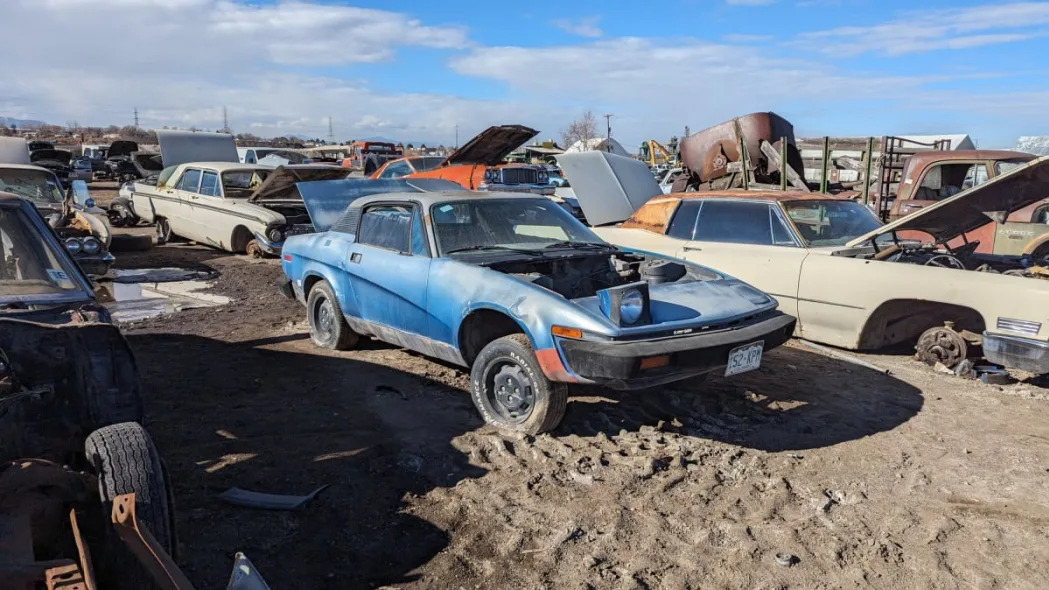
Or this TR7? You’ll find two Princess limousines as well, plus a chrome-bumper MGB-GT.
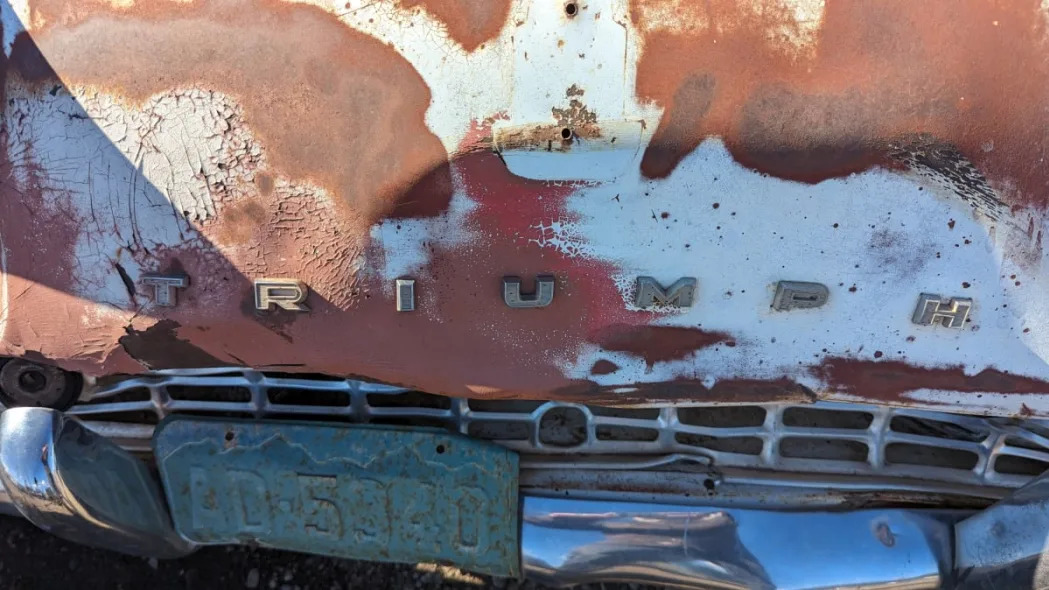
The Standard Motor Company (owner of the Triumph brand) began building TR3s in 1955 and gave the car a major facelift for 1957. This version of the car became known as the TR3A (though the manufacturer never officially used that designation), and it was built until 1962. There was a short-lived TR3B version launched that year as well, after which the TR4 took over.
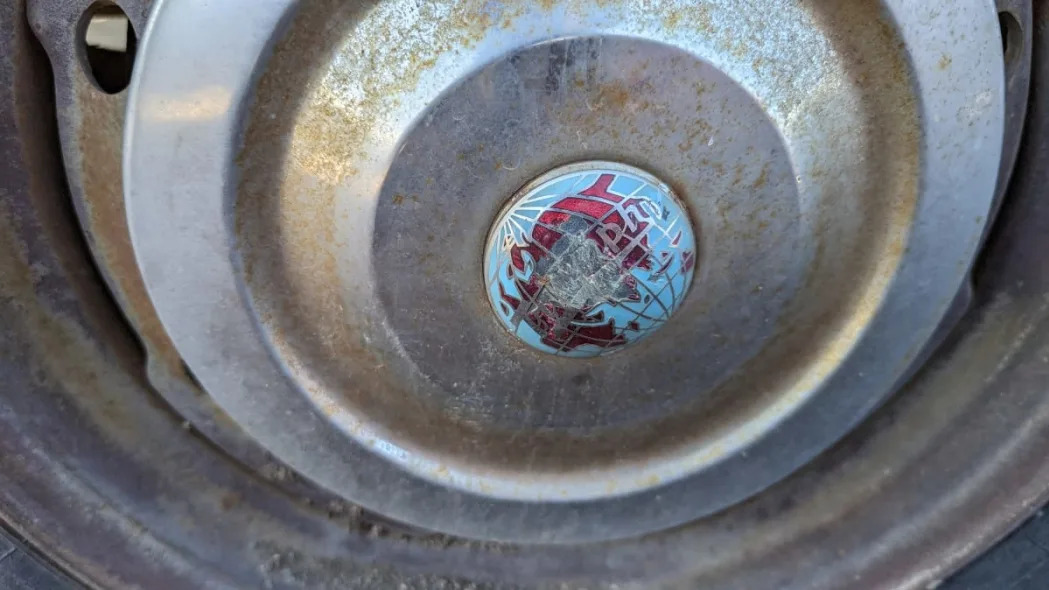
Standard was bought by Leyland Motors soon after this car was built, with the Standard marque being phased out in favor of Triumph a few years later. Eventually, Triumph would join Jaguar, MG, Rover and all the rest as part of the British Leyland team.
That was unpleasant for Triumph stalwarts and for intra-division politics within British Leyland, because MG’s MGA and MGB were bitter sales rivals to the TR3 and TR4. It’s good for the telling of this bit of junkyard history, though, because it allows me to bring up some of the most legendary sports cars in 1960s sexploitation cinema history: the trio of machines driven by the murderous protagonists in Russ Meyer’s “Faster, Pussycat! Kill! Kill” of 1965. Tura Satana drives a 1964 Porsche 356 coupe, Lori Williams drives a 1959 MGA and Haji drives a 1958 Triumph TR3A.
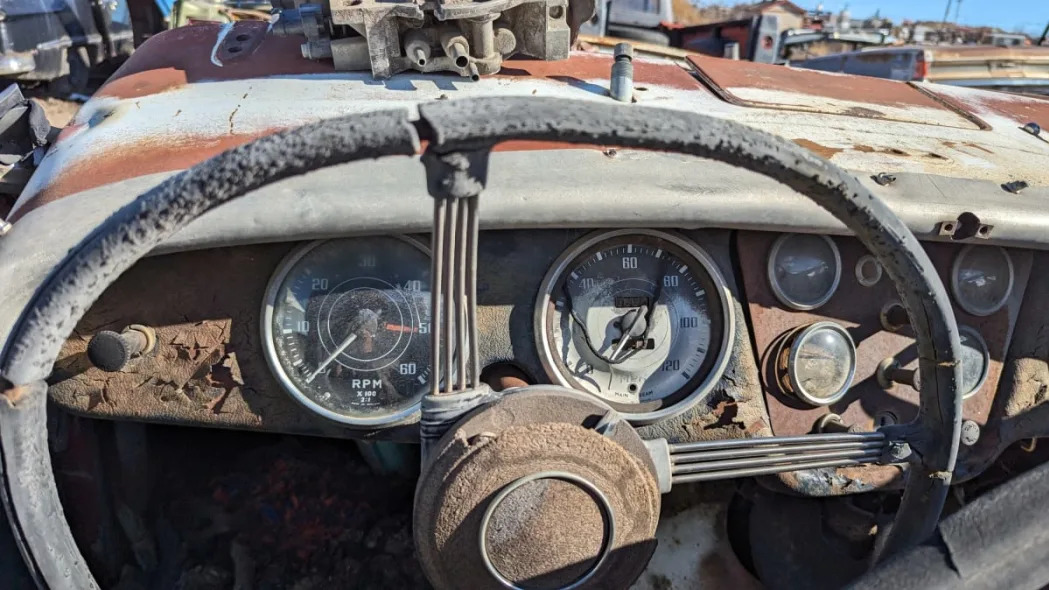
In 1960, all three of those cars were priced within shouting distance of one another. The TR3A roadster listed at $2,675, the MGA 1600 was $2,444 and the base 356 coupe cost $3,700 (in 2024 dollars, those prices would be $28,005, $25,587 and $38,736, respectively).
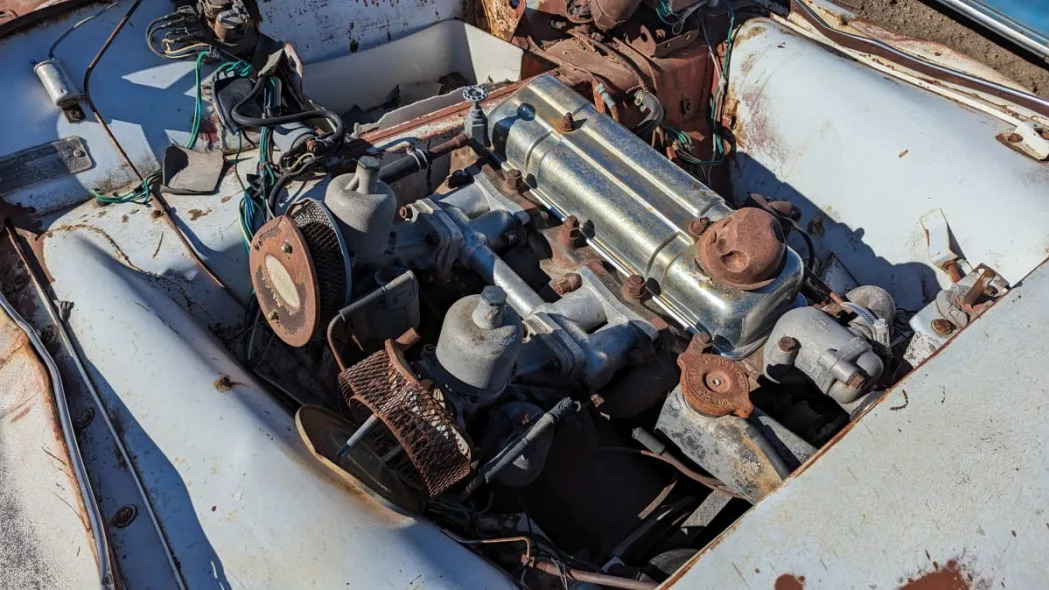
The engine in this car is a pushrod Standard straight-four displacing 2.0 liters, rated at 100 horsepower and 114 pound-feet. The MGA’s pushrod 1600 made 79.5 horsepower and 87 pound-feet, though the $3,069 ($32,130 after inflation) MGA Twin-Cam was good for 104 horses and 108 pound-feet. Meanwhile, your friendly Porsche dealer offered 356s with 1.6-liter engines making 60 horsepower and 81 pound-feet, with more powerful plants available at intimidatingly higher prices.
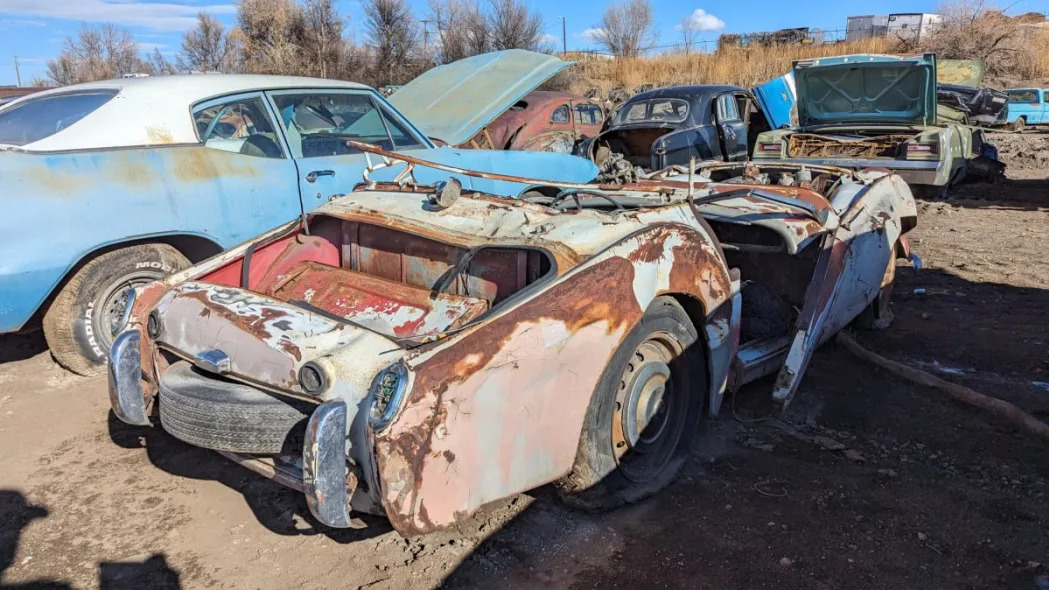
This car is very rough. It appears to have been stored outdoors in the fierce High Plains climate since Richard Nixon was in the White House, and took quite a few hard storage knocks during that time.
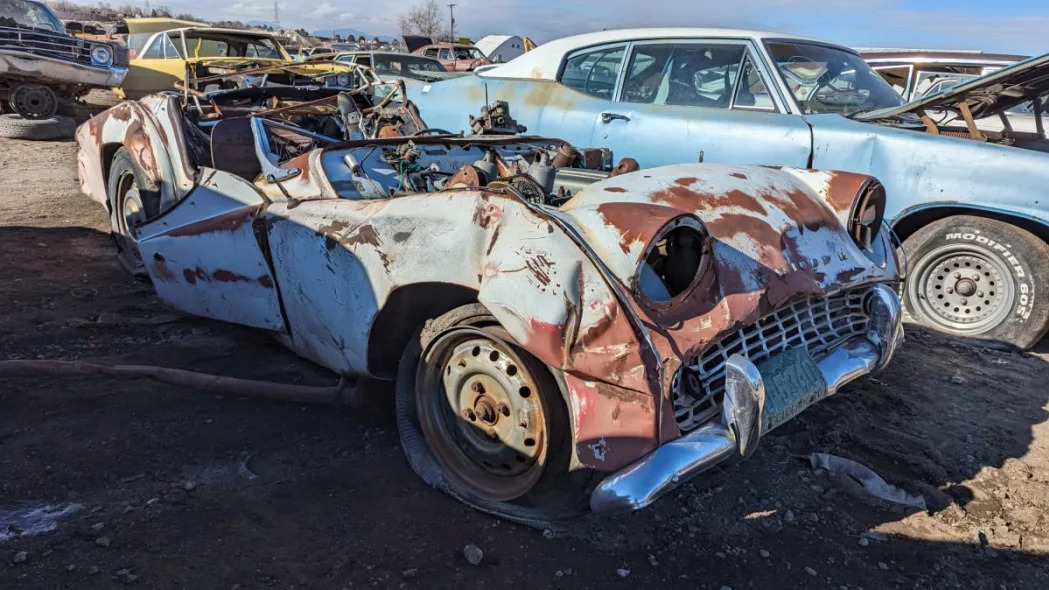
It’s nowhere near worth restoring, but still has some parts that will prove useful to local Triumph aficionados.
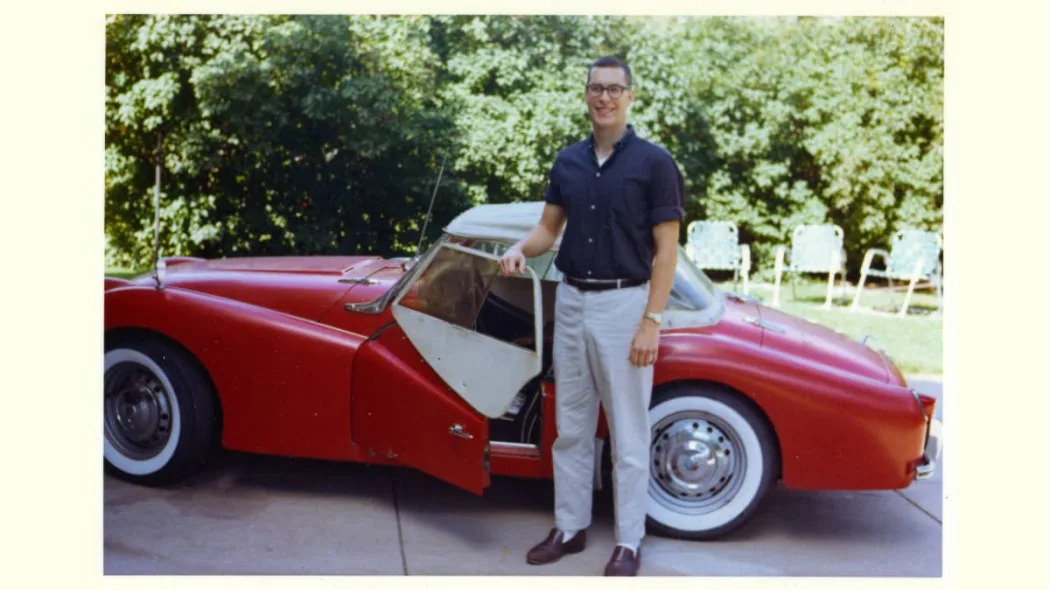
My in-laws daily-drove a beautiful red TR3A during the early 1960s, somehow managing to keep it from rusting to nothingness in Milwaukee. When my future wife was born, they suffered an attack of sensible thinking and traded in the Triumph on a Buick station wagon. I hope that TR3A is still on the road today.
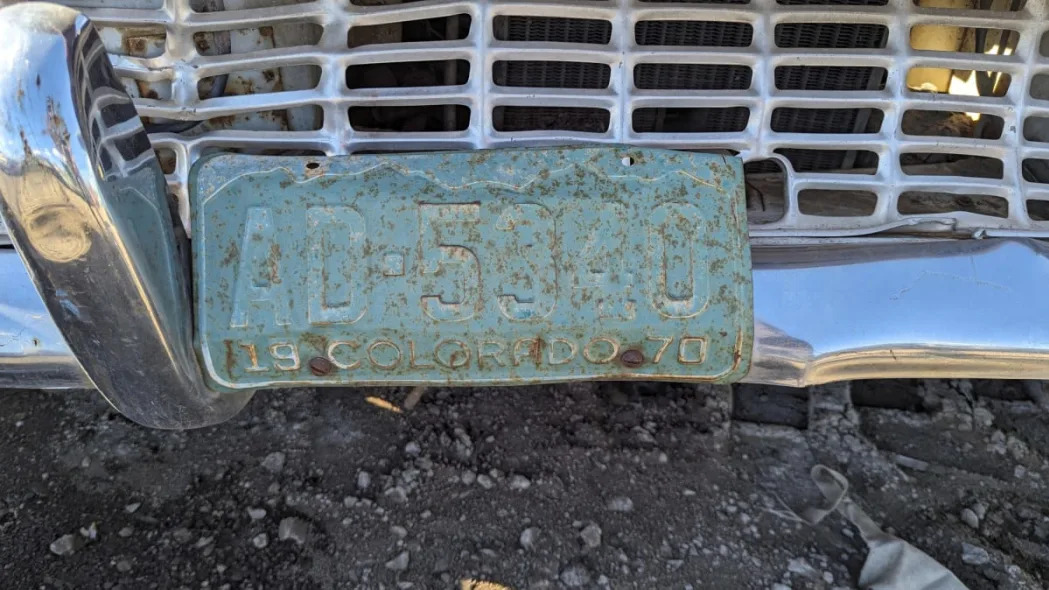
I may have to go buy this nicely weathered Colorado plate.
There’s no TR3A, but you’ll like the Big Healey with gold plating and mink upholstery.







